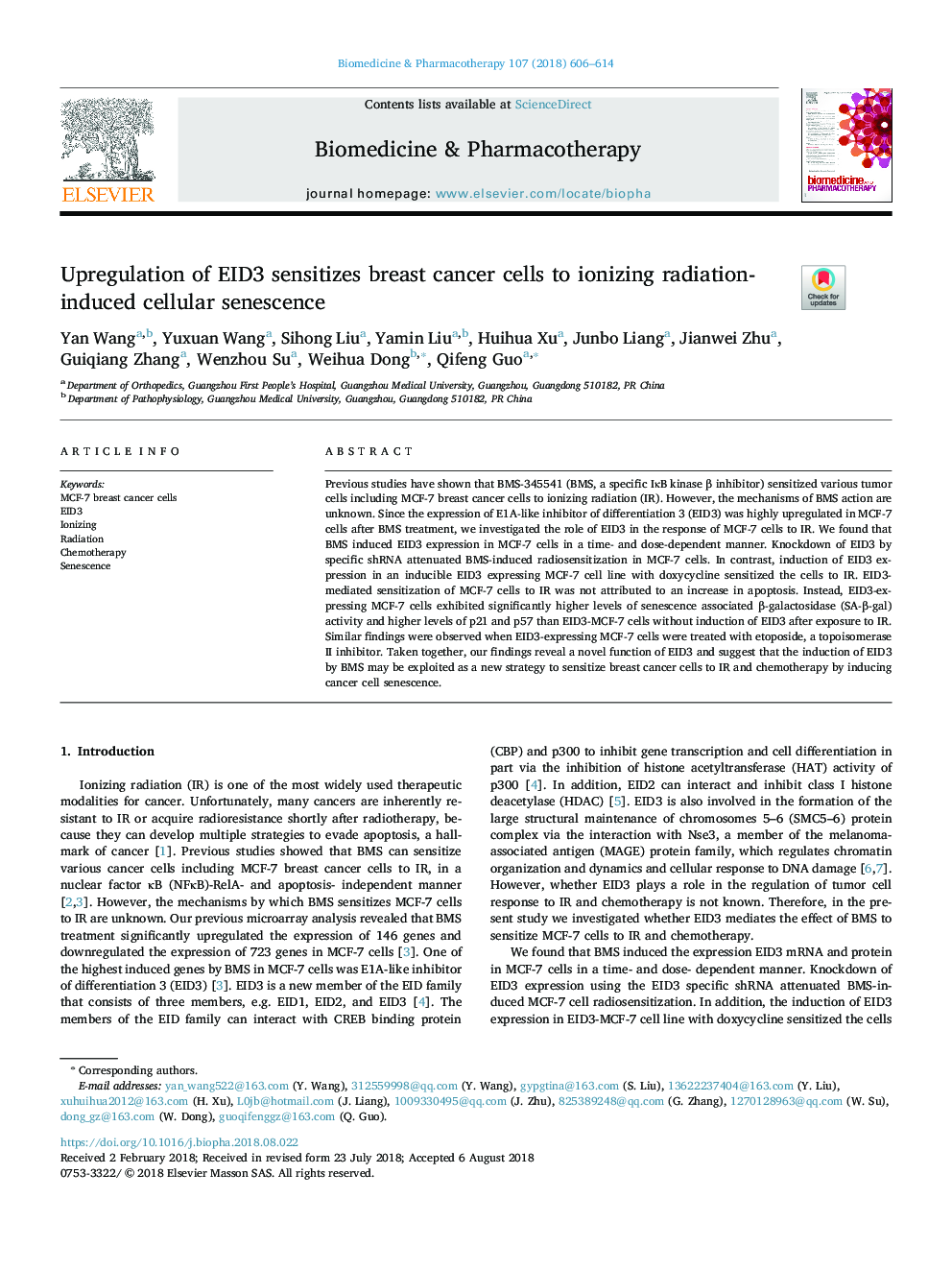| Article ID | Journal | Published Year | Pages | File Type |
|---|---|---|---|---|
| 9954849 | Biomedicine & Pharmacotherapy | 2018 | 9 Pages |
Abstract
Previous studies have shown that BMS-345541 (BMS, a specific IκB kinase β inhibitor) sensitized various tumor cells including MCF-7 breast cancer cells to ionizing radiation (IR). However, the mechanisms of BMS action are unknown. Since the expression of E1A-like inhibitor of differentiation 3 (EID3) was highly upregulated in MCF-7 cells after BMS treatment, we investigated the role of EID3 in the response of MCF-7 cells to IR. We found that BMS induced EID3 expression in MCF-7 cells in a time- and dose-dependent manner. Knockdown of EID3 by specific shRNA attenuated BMS-induced radiosensitization in MCF-7 cells. In contrast, induction of EID3 expression in an inducible EID3 expressing MCF-7 cell line with doxycycline sensitized the cells to IR. EID3-mediated sensitization of MCF-7 cells to IR was not attributed to an increase in apoptosis. Instead, EID3-expressing MCF-7 cells exhibited significantly higher levels of senescence associated β-galactosidase (SA-β-gal) activity and higher levels of p21 and p57 than EID3-MCF-7 cells without induction of EID3 after exposure to IR. Similar findings were observed when EID3-expressing MCF-7 cells were treated with etoposide, a topoisomerase II inhibitor. Taken together, our findings reveal a novel function of EID3 and suggest that the induction of EID3 by BMS may be exploited as a new strategy to sensitize breast cancer cells to IR and chemotherapy by inducing cancer cell senescence.
Related Topics
Health Sciences
Medicine and Dentistry
Oncology
Authors
Yan Wang, Yuxuan Wang, Sihong Liu, Yamin Liu, Huihua Xu, Junbo Liang, Jianwei Zhu, Guiqiang Zhang, Wenzhou Su, Weihua Dong, Qifeng Guo,
